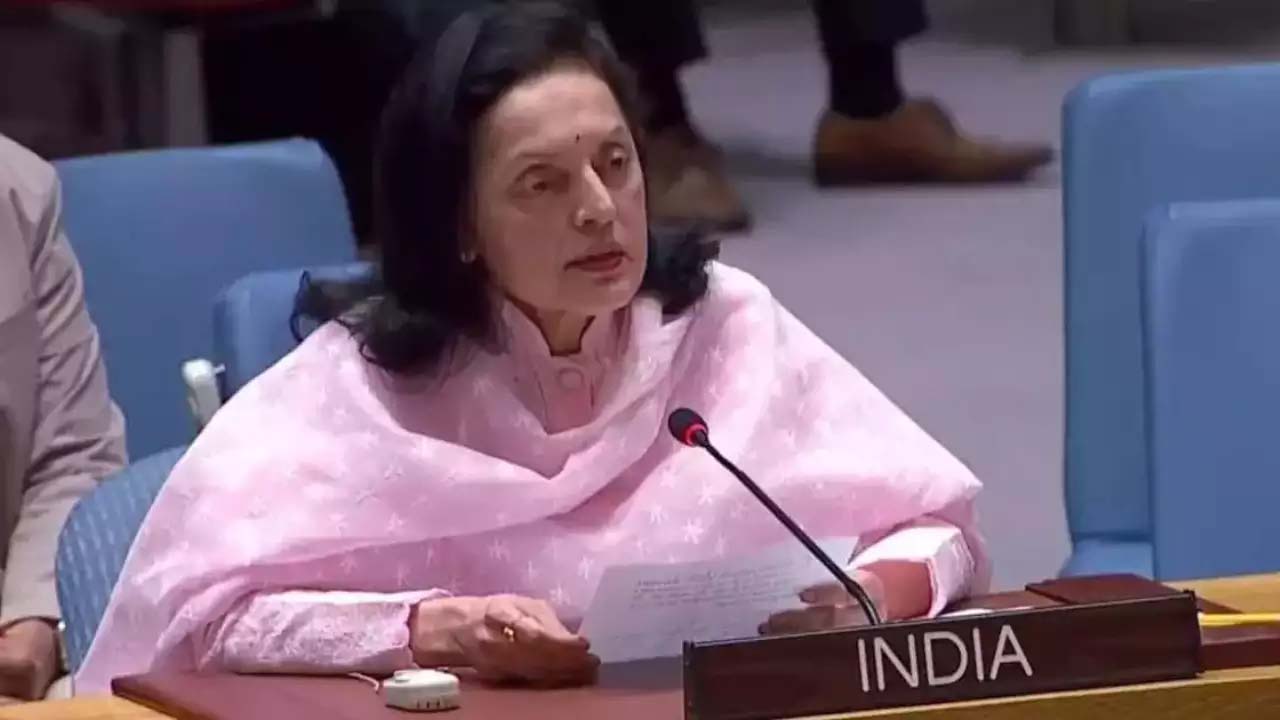In the United Nations’ arena, India opted for abstention during the recent UN General Assembly session, concerning a draft resolution tabled by Pakistan, and co-sponsored by China, addressing the issue of Islamophobia. India’s abstention signified a stance emphasizing the necessity to recognize a broader spectrum of religiophobic instances, encompassing not only Islam but also other faiths such as Hinduism, Buddhism, and Sikhism, all subjected to discriminatory and violent treatments.
The resolution titled “Measures to Counter Islamophobia,” put forth by Pakistan, received an affirmative nod from 115 out of the 193 member states, with none opposing and 44, including India, opting for abstention. India’s Permanent Representative to the UN, Ambassador Ruchira Kamboj, while expressing condemnation towards acts motivated by anti-Semitic, Christianophobic, and Islamophobic sentiments, underscored the imperative to acknowledge that religiophobic tendencies transcend the realms of Abrahamic religions.
Evidence substantiates the enduring impact of religiophobia on adherents of non-Abrahamic faiths over extended periods. Ambassador Kamboj elucidated India’s stance on the resolution, emphasizing the emergence of contemporary manifestations of religiophobia, particularly targeting Hinduism, Buddhism, and Sikhism. India cautioned against setting a precedent through resolution adoption that might pave the way for a proliferation of religion-centric resolutions, potentially fragmenting the UN along religious lines, thus jeopardizing its overarching goal of fostering global unity and peace.
India urged member states to adopt a comprehensive perspective on religious discrimination prevalent worldwide. While acknowledging the significance of addressing Islamophobia, India emphasized the need to confront discrimination and violence against other faiths as well. The disproportionate allocation of resources solely to combat Islamophobia, at the expense of addressing analogous challenges faced by other religious communities, could inadvertently perpetuate sentiments of exclusion and inequality.
Ambassador Kamboj reiterated the imperative of acknowledging the prevalence of religiophobia encompassing Hinduism, Buddhism, and Sikhism, with vast global adherent bases. She underscored the escalating incidents of religiophobic acts targeting religious sites and disseminating hatred and disinformation against non-Abrahamic faiths in various countries.
Instances such as the destruction of the Bamiyan Buddhas, desecration of gurudwaras, massacres of Sikh pilgrims, temple attacks, and idol desecration underscore the surge in contemporary forms of religiophobia against non-Abrahamic religions. India’s stance unequivocally denounces all forms of religiophobia, whether targeting Jews, Christians, Muslims, Hindus, Buddhists, or Sikhs.
The resolution condemned all forms of incitement to discrimination, hostility, or violence against Muslims, as evidenced by escalating incidents of Quran desecration, mosque attacks, and other acts of religious intolerance and violence. Additionally, it called for the appointment of a UN Special Envoy to combat Islamophobia, a proposition India expressed reservations about, citing concerns regarding budgetary implications and advocating for a more inclusive approach to address religious discrimination comprehensively.
Ambassador Kamboj highlighted India’s rich historical legacy as a pluralistic and democratic nation, providing sanctuary to persecuted individuals of various faiths, including Zoroastrians, Buddhists, Jews, and adherents of diverse beliefs. India’s vote in favor of amendments proposed by Belgium, aimed at revising the resolution’s language and altering the mechanism for combating anti-Muslim discrimination, reflects its commitment to upholding principles of religious tolerance and inclusivity.
The adoption of the resolution in 2022, declaring March 15 as the International Day to Combat Islamophobia, followed the tragic 2019 mass shootings in Christchurch, New Zealand. In his remarks commemorating the day, UN Secretary-General Antonio Guterres voiced concerns over the escalating tide of anti-Muslim hate and bigotry worldwide, emphasizing the interconnectedness of hate and its detrimental impact on societal cohesion and stability.









